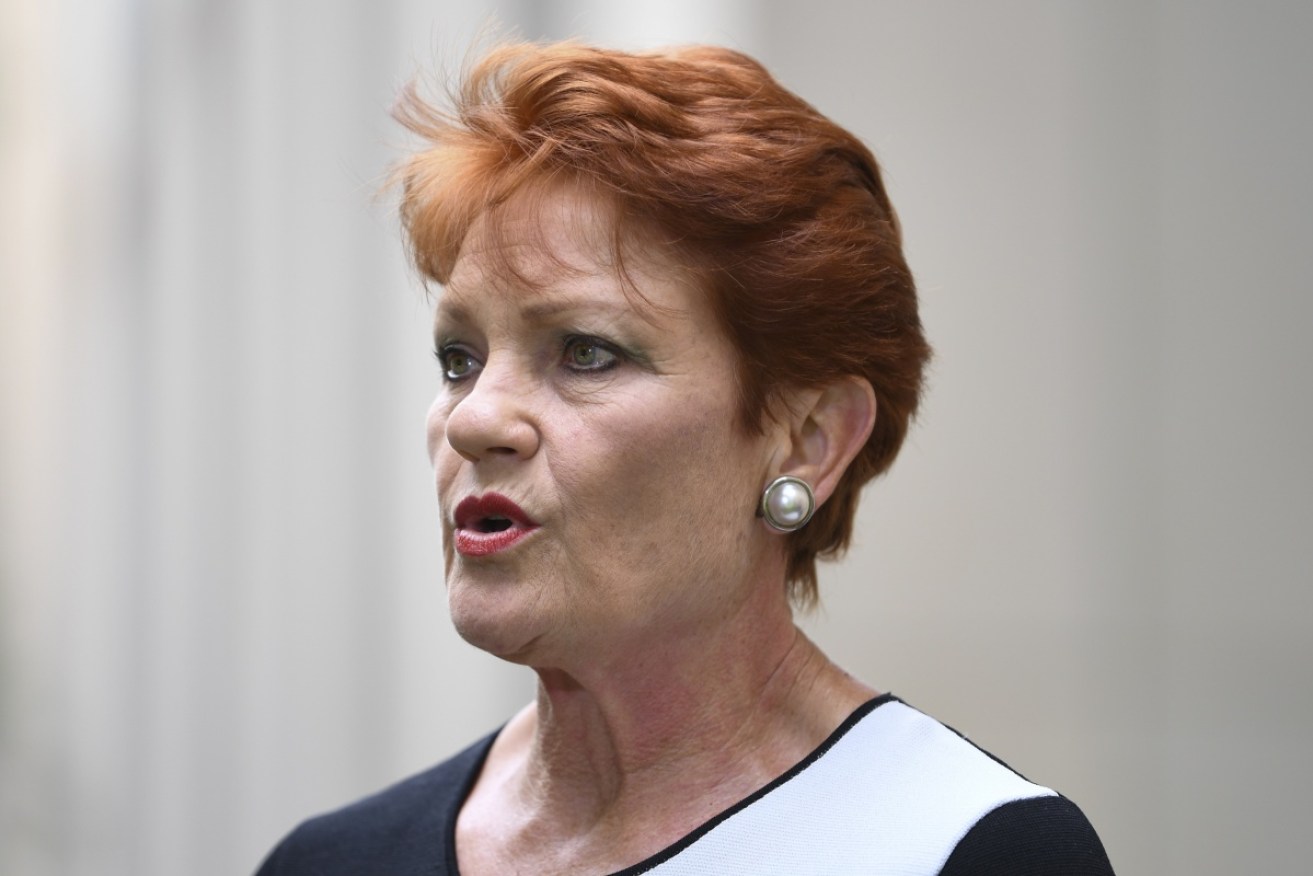Pauline Hanson won’t be turned on company tax cuts


Ms Hanson hauled before the powerful Senate privileges committee . Photo: AAP
The government’s $65 billion in corporate tax cuts are now in real trouble – not just because Pauline Hanson’s One Nation has decided to block them in the Senate, but because this time the party has really done its homework as to why.
That includes, according to Senator Hanson’s office, having “a former ATO employee on full-time staff … for the past 12 months”.
Senator Hanson’s office told The New Daily that she had “spent a great deal of time speaking with company CEOs and business groups about [company] tax cuts and whether they will encourage wage rises or increased job opportunities. The short answer from all has been ‘no!’.”
The additional research is clearly apparent in an article the senator published in Monday’s Australian newspaper in which she challenged the idea that Australia had to compete with the Trump administration’s company tax cuts.
She wrote: “The availability of … tax refunds and tax credits is one of many factors that complicates a simple comparison of tax rates.
“In the US, companies pay federal income tax, and state income tax applies in 48 states. The Trump tax rate becomes anywhere between 21 per cent and 33 per cent, depending on the state. So a simple comparison of country tax rates is next to useless.”
Michael Dirkis, professor of taxation law at the University of Sydney, says those figures are “about correct” and adds that “very few states don’t have their own company income tax”.
As explained last week, the effective tax rate that applies in any tax regime varies between companies, due to factors including: the ability to carry forward losses; the capital and asset structures of the firm; the generosity or otherwise of asset depreciation schedules; and the presence or absence of state-level taxes.
Digging in
One Nation has a patchy record on economic matters to say the least. Early in her career, for instance, Senator Hanson produced a much-ridiculed plan to levy a flat 2 per cent tax on all levels of value-added production, which would have killed some companies and given others huge tax cuts.
On the current company tax debate, however, she has listened to the experts – and importantly, not to CEOs such as Qantas’ Alan Joyce or Rio Tinto’s Jean-Sebastien Jacques who have used the misleading headline tax rates to argue that Australia was becoming “uncompetitive” for investors.
Mr Jacques, who was part of Prime Minister Malcolm Turnbull’s delegation to Washington over the weekend, warned in Monday’s Australian Financial Review: “I’ve got projects both in Australia and in the US, and it will be a pity if the money goes to the wrong direction … When you’ve got a project which is going, especially in mining and infrastructure, with a 40-, 50-year life of project, the 10-point gap (in the company tax rate) makes a massive, massive difference.”
Well there is no 10-point gap – as Professor Dirkis told The New Daily last week, effective tax rates in the US may still be higher than in Australia depending on the type of firm in question.
Not for turning
A spokesperson for the senator told The New Daily: “Our entire Senate team has been well briefed on the facts and have unanimously agreed on the party’s position.
“Blindly following Donald Trump and countries like the UK or France is fiscally irresponsible. There’s no denying Australia’s tax system needs a significant overhaul, but tinkering around the edges with cuts alone is not the answer.”
This is reassuring coming from the Senate crossbench. Without that kind of understanding of the issues, the cuts could have been waved through based on the ‘uncompetitive Australia’ fallacy.
That would have produced large windfalls for foreign investors and virtually no change for local shareholders due to Australia’s dividend franking credit system.
And it would have pushed more of the tax burden onto the struggling household sector – primarily by leaving less room in the budget for personal income tax cuts.
By digging in on this issue alongside the Greens and Labor, One Nation has blocked a policy that was ill-considered at best, or at worst an unnecessary and cynical free kick for corporations.








